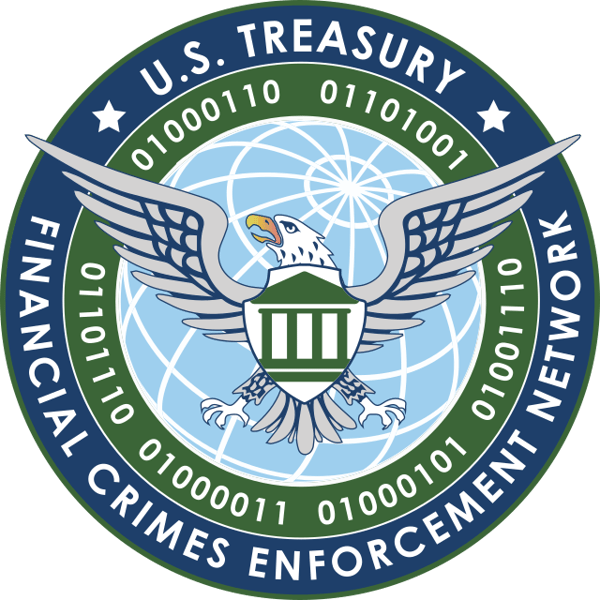The Corporate Transparency Act: What You Need to Know
What is the Corporate Transparency Act?
The Corporate Transparency Act (CTA), which took effect in January 2024, aims to combat money laundering and financial crime by requiring U.S. companies to disclose their true owners, known as "beneficial owners". These owners are individuals who ultimately control or benefit from the company. By shedding light on beneficial ownership, the CTA seeks to hinder criminals who use anonymous shell companies to hide illicit activity.
Who needs to comply?
What do I need to do?
When do I need to file?
How to Comply
Step 1: Fill out our interest form. Someone at FinCEN Report will be in touch.
Step 2: Complete the data release agreement. That will give permission for Vantaca to send relevant association and beneficial owner data to FinCEN Report through our API.
Step 3: File electronically. Data from Vantaca will be sent to FinCEN Report and you can invite beneficial owners to submit their PII securely. Once all information is gathered, you can file.
Start Your Filing Process!
More Resources for Community Associations about the Corporate Transparency Act
.png?width=600&height=600&name=Vantaca%20Community%20Image%20for%20CTA%20(1).png)
Vantaca Community
Join Vantaca Community to connect, collaborate, and share best practices with fellow industry experts to navigate the changes of the CTA together.
log inFAQs about the CTA
In collaboration with Vantaca and FinCEN Report.
What is the purpose of the CTA? Why is the government making us do this?
Congress adopted the CTA to empower FinCEN to compile a database of U.S. companies and their beneficial owners. FinCEN is doing this through the process of collecting beneficial ownership information (BOI) reports. These BOI reports will enable FinCEN to assemble a massive database of beneficial ownership information. FinCEN will use its database to fight money laundering in cooperation with other U.S. law enforcement agencies. Although the FinCEN database will not be publicly available , FinCEN will make the database accessible to U.S. law enforcement agencies, U.S. financial institutions and some non-U.S.law enforcement agencies.
Who will be able to see the data in my Association's BOI report?
FinCEN will keep the BOI data in a confidential database that will only be accessible by law enforcement agencies and financial institutions. FinCEN is required by law to keep its database confidential and secure
I heard that a court held that the CTA was unconstitutional.
There are several lawsuits underway that challenge parts of the CTA and its constitutionality. One court has held that the CTA is unconstitutional, but that court’s ruling only applies to the parties to that case. That particular ruling is now under appeal and not expected to be resolved until 2025 or later.
Compliance obligations will remain in effect during pending litigation
Where can I find more information about the CTA?
What might happen if my Association doesn’t file, or fails to file on time?
The CTA contains serious penalties for non-compliance. A reporting company that fails to file a beneficial ownership report (or a required amendment) when due is subject to a $500 per day fine up to a maximum of $10,000. A willful failure to file a report when due or an intentional filing of inaccurate information is punishable as a felony by up to two years imprisonment. A willful violation in combination with other anti-money laundering violations can result in an amplified penalty of up to ten years imprisonment
What should my Association do if one of our beneficial owners refuses to cooperate?
You should consult an attorney.
Your Association will not be able to file an accurate BOI report until every beneficial owner provides their personal data. One uncooperative beneficial owner prevents the Association from filing an accurate BOI report.
The uncooperative beneficial owner may have personal criminal liability for refusing to cooperate.
In many cases the Association and its cooperating beneficial owners will be best served by expelling the uncooperative beneficial owner from the role that caused them to be a beneficial owner. Your Association may need legal advice from an attorney in such a situation.
What is your process like?
If your website isn't focused on UX (User Experience), it is bound to fail. UX is more than just design; it is knowing your customer and improving their satisfaction through utility, ease of use, and interaction with your product and website. Through the use of growth driven design, you can analyze exactly how your user is interacting with your website and design it accordingly.
Who are the beneficial owners of my Association?
If your Association is organized as a non-profit corporation under state law, its beneficial owners will include its board of directors and its senior officers (President,CEO,CFO,COO).
How can I tell if my Association is tax-exempt under IRC Sec. 528 or 501(c)?
Ask your attorney or tax preparer for help.
An Association that is covered by IRC Sec. 528 files tax returns on IRS Form 1120-H.
An Association that is exempt under IRC Sec. 501(c) will file an annual return on IRS Form 990.
Does the CTA apply to Homeowner Associations, Condo Associations, and Community Associations?
Yes. The CTA applies to any limited liability company or corporation, including non-profit corporations. More than 99% of Homeowner Associations, Condo Associations, and Community Associations are organized as non-profit corporations.
Do Associations that are not incorporated need to file?
No. An unincorporated association is not a "reporting company" for purposes of the CTA. As a practical matter, however, an Association that is going to rely on this analysis should obtain a legal opinion from an attorney before declining to file a BOI report.
Our Association is very small. Do we still need to file?
Yes. There is no exemption for small Associations.

